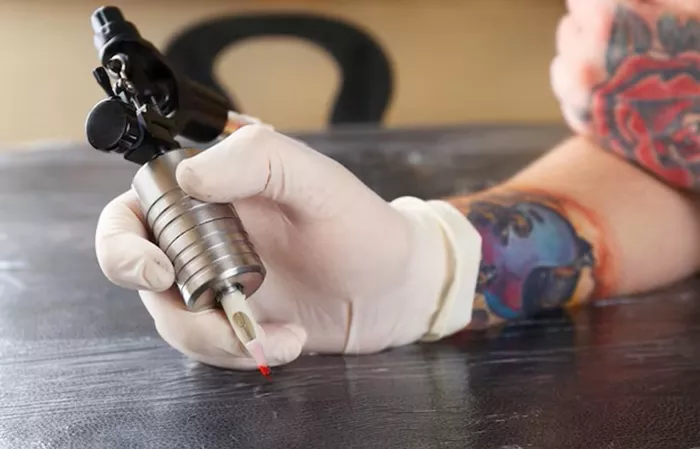Getting a tattoo is an exciting and personal journey, but many people worry about the pain involved. While it’s impossible to eliminate all discomfort, there are several strategies to minimize it. This comprehensive guide will explore various techniques, tips, and considerations to help you achieve a more comfortable tattoo experience.
1. Understanding Tattoo Pain
1.1 The Science of Pain
To better manage pain, it’s essential to understand what it is. This section will delve into the biology of pain, focusing on how our bodies perceive it and the factors that influence pain sensitivity.
1.2 Factors Influencing Pain Levels
Pain perception varies from person to person. Factors such as skin type, body location, and personal pain tolerance all play a role. Here, we explore how these factors can affect your tattoo experience.
1.3 Common Pain Areas for Tattoos
Certain areas of the body are known for being more painful than others during tattooing. This section highlights the most sensitive spots and what to expect in those regions.
2. Choosing the Right Tattoo Artist
2.1 Researching Tattoo Artists
A skilled artist can make a significant difference in your experience. This section offers tips on finding a qualified tattoo artist who prioritizes client comfort.
2.2 Communicating Your Concerns
Effective communication with your tattoo artist is key. Here, we discuss how to express your pain concerns and preferences to ensure a comfortable session.
2.3 Trusting Your Tattoo Artist
Establishing trust with your artist can help ease anxiety. This part covers how to build rapport and ensure you feel safe during the tattooing process.
3. Preparing for Your Tattoo
3.1 Mental Preparation
Mental readiness can affect your pain perception. This section explores mindfulness techniques and mental exercises to help you prepare for your tattoo.
3.2 Physical Preparation
Taking care of your body before getting a tattoo can reduce discomfort. Here, we discuss hydration, nutrition, and sleep to ensure you’re in the best physical condition.
3.3 Choosing the Right Time
Timing can impact your pain experience. This section explores the best times to schedule your tattoo based on your body and emotional state.
See also: Mastering the Art of Drawing Tattoos on Paper: A Full Guide
4. Techniques to Minimize Pain During Tattooing
4.1 Numbing Creams and Gels
Topical anesthetics can provide relief during the tattooing process. Here, we discuss how to use these products effectively and what to look for.
4.2 Breathing Techniques
Breathing techniques can significantly reduce pain and anxiety. This section provides various methods, including deep breathing and visualization techniques.
4.3 Distraction Techniques
Keeping your mind occupied can lessen the perception of pain. Here, we explore effective distraction strategies, such as music, conversation, or meditation.
4.4 Body Positioning
Your position during the tattooing process can affect your comfort level. This part discusses the best postures to adopt for pain management.
4.5 Taking Breaks
If the pain becomes too intense, requesting breaks can help. This section discusses the importance of pacing and taking time to breathe.
5. Aftercare and Pain Management
5.1 Immediate Aftercare
Proper aftercare can reduce pain and promote healing. Here, we outline the immediate steps to take after getting your tattoo.
5.2 Long-term Pain Management
Managing discomfort in the days following your tattoo is essential. This section discusses effective pain relief methods, including ice packs and over-the-counter medications.
5.3 Recognizing Complications
Knowing when to seek medical help is crucial. This part outlines signs of infection or complications and what to do if they occur.
6. Tattooing Techniques that Reduce Pain
6.1 The Role of Equipment
The type of tattoo machine and needles used can impact pain levels. Here, we explore the technology behind tattooing and how it can make a difference.
6.2 Different Tattooing Styles
Certain tattooing techniques can be less painful. This section discusses styles like single needle and fine line tattoos that may cause less discomfort.
6.3 Exploring Alternative Tattoo Methods
In recent years, alternative tattoo methods like stick-and-poke have gained popularity. This part discusses their pain levels compared to traditional tattooing.
7. Alternatives to Traditional Tattoos
7.1 Temporary Tattoos
For those concerned about pain, temporary tattoos can be an excellent alternative. This section discusses the benefits and options available.
7.2 Henna and Body Art
Henna and other body art styles provide a pain-free way to express creativity. Here, we explore these options and their significance.
7.3 Tattoo Removal Options
If you change your mind after getting a tattoo, knowing about removal options is essential. This section discusses the different methods available and their pain levels.
8. Stories from Tattoo Enthusiasts
8.1 Real-life Experiences
Hearing from those who have successfully managed pain during their tattoos can be inspiring. This part shares personal stories and strategies from tattoo enthusiasts.
8.2 Lessons Learned
Learning from others’ experiences can provide valuable insights. Here, we compile lessons that can help future tattoo seekers.
9. Conclusion: Embracing the Tattoo Journey
While some pain is inevitable in the tattoo process, there are numerous ways to minimize discomfort. This guide has provided a comprehensive overview of techniques and strategies to help you navigate the tattoo experience more comfortably. By preparing mentally and physically, choosing the right artist, and employing pain management techniques, you can embrace your tattoo journey with confidence and excitement. Remember, tattoos are a form of self-expression, and every mark tells a unique story.
You Might Be Interested In
Illustration Style Tattoos: A Detailed Exploration of Artistic

